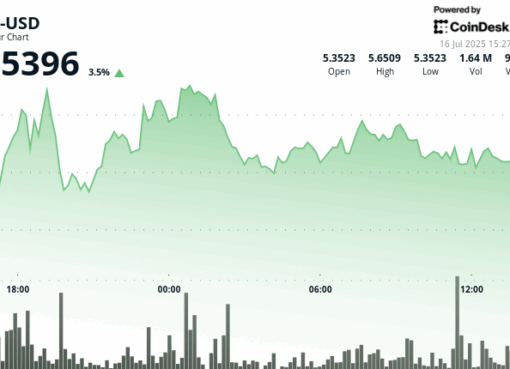A Spanish decentralized finance (DeFi) investor was hit with 9 million euros ($10.5 million) in back taxes for taking out a crypto-backed loan, according to a local media report.
In a Thursday report, Spanish news outlet Periodista Digital said it obtained documents showing the investor had already declared all cryptocurrency operations and paid $5.84 million in taxes.
Three years later, authorities issued an additional bill tied not to undeclared profits, but to the act of depositing assets into a DeFi protocol in exchange for a loan. The assets were not sold, and no profit was realized, the report said.
A tax adviser quoted in the report said that the local tax agency “has taxed something that, from any economic or legal perspective, is not income.” The adviser added that the movement of assets in the DeFi protocol was treated as realized gains and was “an interpretation with no legal basis in Spanish or European legislation.”
The report said the Spanish Agencia Estatal de Administración Tributaria (AEAT) classified a stablecoin loan as a capital gain and token transfers to protocols such as Beefy or Tarot as taxable events.
This classification, critics argued, runs counter to Article 33 of Spain’s Personal Income Tax Law, which defines capital gains as requiring an actual economic benefit and a variation in net worth.
According to the report, the situation reflects an issue with the local tax enforcement system.
Related: BBVA gets regulatory nod to offer Bitcoin and Ether trading in Spain
Spain’s crypto tax enforcement
Spain’s tax agency has been warning crypto holders about taxes for years, sending 328,000 warning notices for taxes on crypto for the 2022 fiscal year in 2023, followed by 620,000 similar notices a year later. Local regulation also required local crypto users to declare their foreign crypto holdings by the end of March 2024.
According to June reports, AEAT can access and seize crypto holdings if tax obligations are not met. The report suggested Spanish citizens do not have a fair recourse path when the tax agency makes a mistake.
Related: Spanish bank BBVA suggests clients make 7% crypto allocation
Spain’s first line of appeal in tax disputes is the Tribunal Económico-Administrativo Central (TEAC), an administrative body under the Ministry of Finance. In 2020, the European Court of Justice (ECJ) held that the TEAC is not an independent “court or tribunal” for European Union law.
The report added that TEAC is an administrative tribunal under the authority and control of the local Ministry of Finance. The government appoints the tribunal’s officials, who are appointed by and dependent on the same authority whose decisions they review, the ECJ said.
Magazine: Best and worst countries for crypto taxes — plus crypto tax tips




